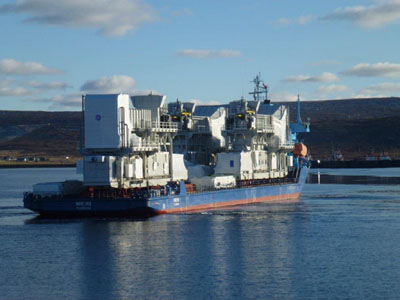 I am an EPC
I am an EPC
Q: I have an LNG plant comprising 500,000 CBM of modules which are individually up to 50M long, 20M high and weigh between 100 and 2500 tonnes. Fabrication will be in Oman, Malaysia and Korea, and the project site is in east Africa. There is no port there. How should we approach this contract? How much will it cost. Who should I work with, and why. How do I manage the budget. How do I avoid time and cost over-runs. How do I structure the contracts? I have many other questions about engineering, seafastening, jacking points, installation, insurance, warranty, and whether we should work with shipowners or forwarders or both of them?
Q: We have extensive supply-chains on our projects covering all aspects of sourcing, procurement, logistics and materials, and within that chain is our specialist Logistics Team. It is here in this team that we want to strengthen our knowledge and methodology through both internal training and through the addition of new personnel with specialist skills and experience. We want to build our knowledge and experience to a level that matches or exceeds the levels in our contractors. The next few years are going to be challenging for the service-provider sector, especially for project-shipowners and heavy-logistics contractors. There is potential for increasing instability in this sector, and we do not want to find ourselves involved in their own internal problems. We want to understand them better, and understand their operating methods and structures better. By reaching this knowledge level we feel we will be able to be more proactive in defining what we want from our contractors in their method and scope of work, and in defining which contractors we should work with, which will give us greater control of budget, schedule and risk. We are looking for a development program to bring us this step-change – what would be your analysis and advice?
Q: We buy-in our shipping services directly from carriers but our RFQs are not strong enough or comprehensive enough to take into account the multiple scenarios where things could possibly go wrong and result in lost time and budget overrun. With hindsight, our RFQs and the subsequent contracts always seem to have gaps in them, and we end up paying for those gaps. Can you review our enquiry and contract systems and strengthen them?
Q: We are starting a highly confidential feasibility study for a refinery extension in the Arabian Gulf and want to look at the logistics budget without going out with official RFIs and RFQs. It is important this study is kept below the radar for political reasons. Can you provide us with an accurate budget and method assessment without going into the market and revealing the details of the project?
Q: After a successful FEED process we are now awarded the EPC contract for a gas storage and process plant. We have received various proposals from project forwarders, heavy logistics contractors and shipowners for the project’s logistics. When compared together the proposals show major variations in methods, costs, contract types and risk. Can you independently advise us on the RFQ we sent out and assess it for weaknesses, assess the proposals we received, and identify where there are gaps between the services we need and the services offered?
